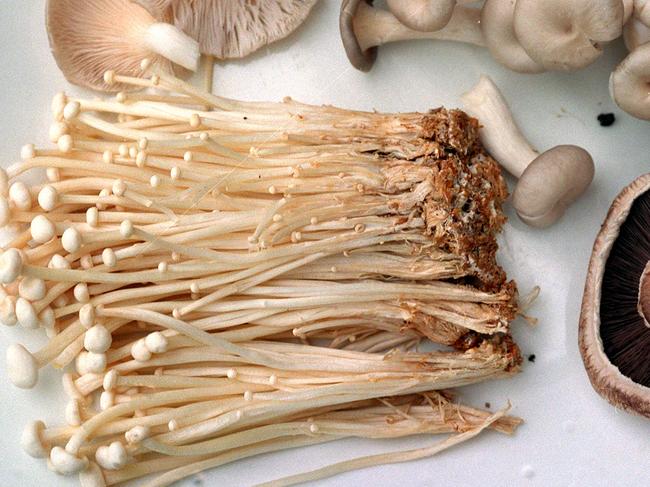Food safety investigators using new weapon in fight against deadly food poisoning
Food safety investigators have revealed a new weapon in their fight to identify the causes of foodborne illness that kills 38 Australians every year and costs $2.1 billion.
National
Don't miss out on the headlines from National. Followed categories will be added to My News.
Food safety investigators are turning to whole genome sequencing to help identify the causes of foodborne diseases, which are responsible for the deaths of 38 Australians every year.
Food poisoning costs the national economy $2.1 billion a year, with an estimated 4.67 million cases in Australia each year that result in 47,900 hospitalisations.
Chair of the Food Safety Information Council Cathy Moir said tracking down the cause of food poisoning cases was a huge job and in the past this was only done by asking those with food poisoning what and where they had eaten recently and trying to link that information to a particular source of the suspect food or type of food.
“Often this is very difficult as people blame the last thing they ate when it could have been eaten several days, weeks or even months ago or they can’t remember everything they have eaten,” she said.
“More recently whole genome sequencing has emerged as a highly accurate tool, supported by interview information, to identify the viruses, bacteria, fungi and parasites that cause foodborne diseases. All of these pathogens have unique DNA patterns that can be compared among infected people and with a suspected food source, if positive samples have been isolated from food.”

Ms Moir pointed to a recent example of food detective work – an investigation into Listeria monocytogenes in enoki mushrooms in several countries, including in Australia.
“As a result, a number of products have been recalled from sale in Australia and other countries, and educational materials around safe ways to consume enoki mushrooms have been promoted through social media,” she said.
“The current advice is not to eat enoki mushrooms raw but to cook them all the way through, for example in a soup, and store in the fridge at 5°C or under.”
Food poisoning from mushrooms has been in the headlines in Australia after three people died in hospital in Victoria last week after eating a meal containing mushrooms.
Heather Wilkinson, her sister Gail Patterson and husband Don Patterson were poisoned at a lunch in Leongatha on July 29. Heather’s husband Ian Wilkinson is reportedly in a stable condition in hospital.
The lunch, believed to be a beef Wellington dish, was cooked by Mr and Mrs Patterson’s former daughter-in-law Erin Patterson.
Ms Moir said Australia had effective systems in place to protect consumers from foodborne illness which includes the OzFoodNet network, which monitors and responds to foodborne diseases in Australia.
“Their mission is to investigate foodborne disease, describe more effectively its epidemiology (the study of how often diseases occur in different groups of people and why) and identify ways to minimise foodborne disease in Australia,” she said.
She had some practical advice for people who thought they had a foodborne illness. She said it was important to see a doctor, especially if you are in a high-risk group such as being elderly, generally regarded as being over 65-70 years, very young, pregnant or immune compromised.
“If illness is confirmed get in touch with your local food enforcement contact to report it. It probably wasn’t the last meal you ate, but if you have any food samples keep them refrigerated as they may be collected for analysis,” Ms Moir said.
Originally published as Food safety investigators using new weapon in fight against deadly food poisoning




